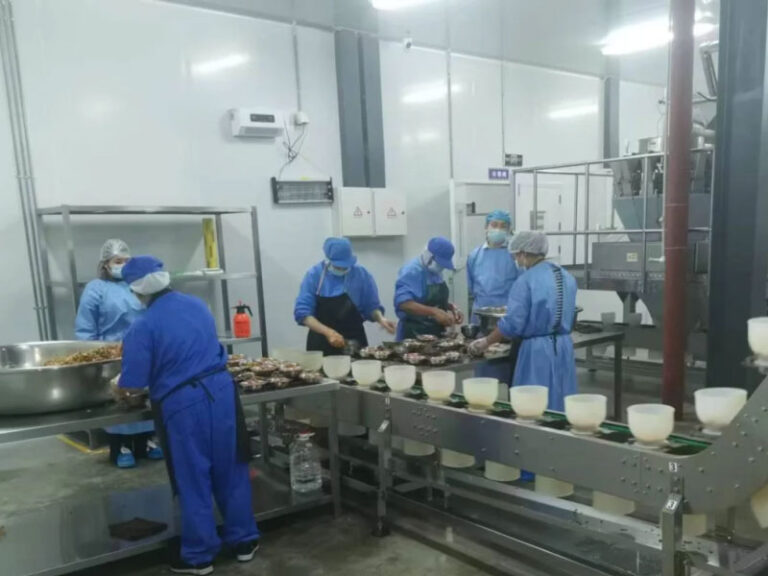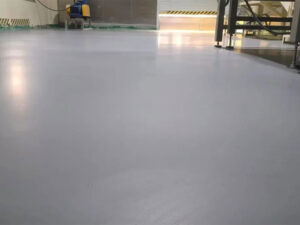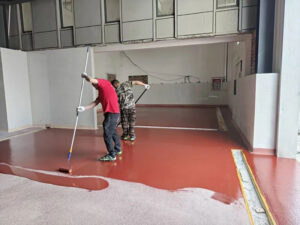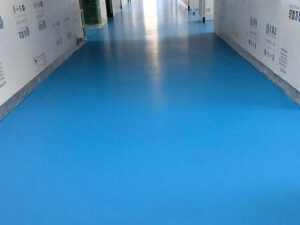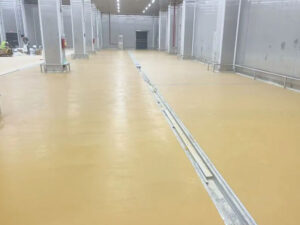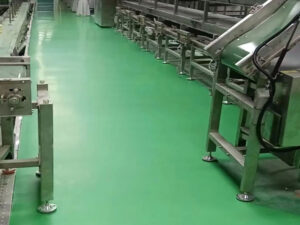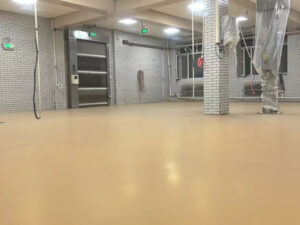Prepared food production demands the highest standards of hygiene and safety. Every step, from raw material handling to final packaging, requires stable and reliable floor support. However, many prepared food manufacturers still struggle with floor issues—mold growth in damp environments, damage from cleaning chemicals, and hidden pockets of processing residue. These seemingly small details can become hidden risks affecting product quality. JINYU PAINT’s urethane mortar floor system is becoming the top choice for factory upgrades due to its precise fit for prepared food production environments.
What are the Flooring “Pain Points” in a Prepared Food Factory?
The environment in a prepared food processing production facility can be called “severe”: constant dampness from washing, temperature changes from sterilization, frequent use of acidic/alkaline cleaners, plus long-term wear from forklifts and equipment. Common issues with traditional floors fall into three areas: 1) Hygiene Risks: Seams trap dirt. Meat scraps and juices seep into cracks, are hard to clean, and become breeding grounds for bacteria, creating food safety risks. 2) Poor Water Resistance: Long-term exposure to moisture causes dusting, hollowing, and even local collapse, disrupting production flow. 3) Low Chemical Resistance: Surfaces are easily corroded by disinfectants, shortening the floor’s life and potentially contaminating products via material shedding. These are not just wear and tear issues; they directly impact production efficiency and quality control, becoming hidden obstacles to scale.
How is Urethane Mortar Flooring the Perfect Fit for Prepared Food Production?
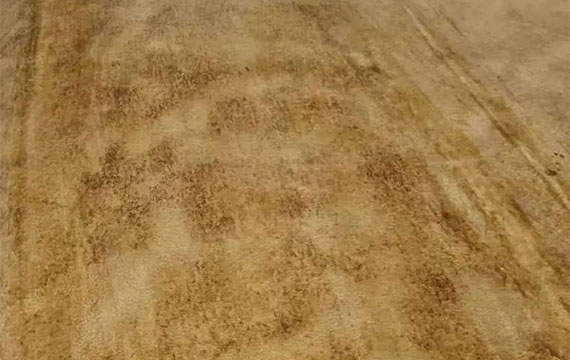
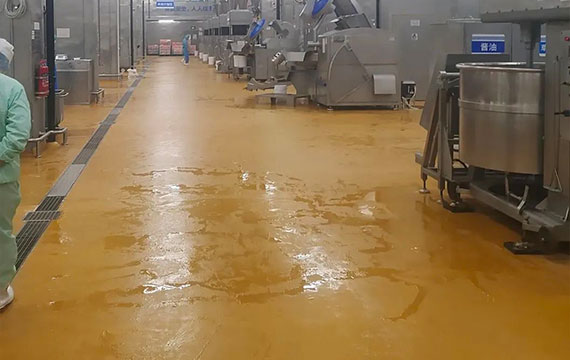
JINYU PAINT’s urethane mortar flooring is specifically designed for the unique needs of these facilities. Its core advantages are in three dimensions:
- Seamless & Sanitary: The key to solving hygiene problems. Its seamless structure eliminates cracks and joints where dirt can hide. Combined with coving at the walls, it allows for efficient cleaning—whether with high-pressure water or manual wiping—meeting food safety standards (HACCP, USDA compliant).
- Water & Temperature Resistant: Perfect for damp, fluctuating environments. From thawing to steam sterilization, this flooring remains stable from -40°C to 150°C, preventing cracks from thermal shock. Its excellent waterproofing prevents hollowing and dusting, ensuring a solid base.
- Chemical & Wear Resistance: Extends service life. It resists acids and alkalis used in disinfection and offers exceptional durability against forklifts and heavy traffic, reducing downtime and maintenance costs.
From ‘Functional’ to ‘High-Performing & Durable’: A Value Upgrade
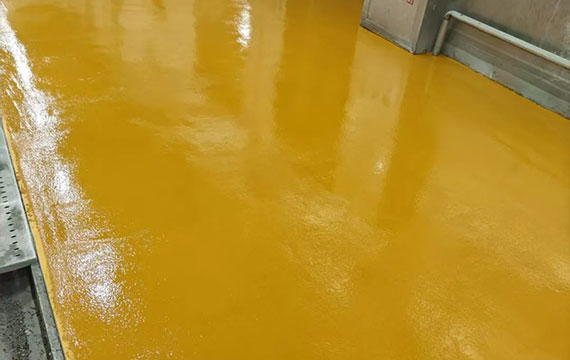
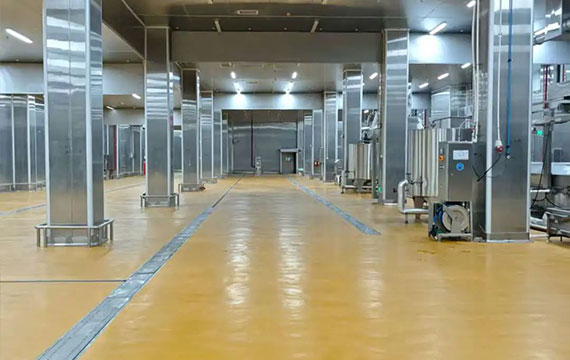
For prepared food companies, upgrading flooring is a practical decision about safety and efficiency. JINYU PAINT’s urethane Mortar Flooring solves the hygiene and wear problems of traditional floors. Its stable performance reduces production interruptions, saving significant maintenance time and cost.
Whether for a small factory renovation or a large new facility, choosing the right flooring is a critical step. If your factory faces these challenges, consider JINYU PAINT® urethane mortar flooring contractors—upgrade from a ‘functional’ floor to a ‘high-performing and durable’ one, providing reliable support for safe and efficient production.
